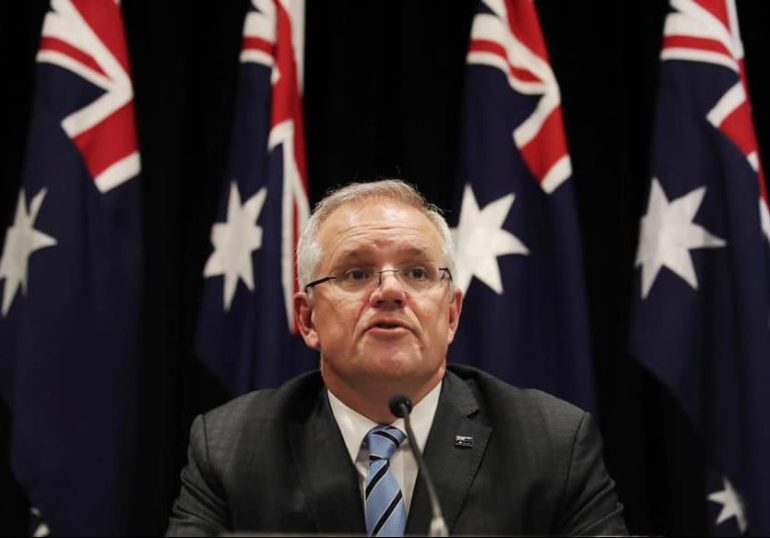Prime Minister Scott Morrison has announced an $800 million digital technology plan for business as part of the ongoing stimulus response to the Covid-19 pandemic
The PM said next Tuesday’s Budget would support businesses to recover and create more jobs. The major areas of focus for the plan include digitisation of the government’s business register, expansion of the digital identity system, supporting SMEs transition to the digital economy and boosting business access to 5G.
The majority of the spending is focused on how business interacts with government, with $419.9 million allocated towards the full implementation of the Modernising Business Registers (MBR) program, allowing businesses to quickly view, update and maintain their business registry data.
Another $256.6 million is earmarked for developing a digital identity system for companies to engage more securely and easily with government services, and subsequently the private sector. More than 1.6 million Australians and 1.16 million businesses already use a digital identity to access more than 70 government services.
“Many businesses moved online quickly when the pandemic hit, undergoing a decade of change in months, finding new customers or new ways of doing things,” Morrison said.
“Our JobMaker Digital Business Plan provides significant backing to continue that digital push and expand opportunities for businesses to grow and create more jobs. The Plan supports Australia’s economic recovery by removing out-dated regulatory barriers, boosting the capability of small businesses and backs the uptake of technology across the economy.”
The other elements of the Digital Business Plan include:
- A further $28.5 million to support the rollout of the Consumer Data Right to the banking and energy sectors;
- $29.2 million to accelerate the rollout of 5G, including commercial trials and testbeds in key industry sectors such as agriculture, mining, logistics and manufacturing.
- $22.2 million to support small business operators through an expansion of the Australian Small Business Advisory Service;
- $11.4 million for a new regulatory technology commercialisation initiative;
- $9.6 million to support fintechs to export financial services and attract inward investment;
- $6.9 million for two blockchain pilots directed at reducing business compliance costs;
- $5.9 million to boost Australia’s influence on international standards;
- $3.6 million towards mandating the adoption of electronic invoicing by 1 July, 2022, for all federal government agencies, and to consult on options for mandatory adoption of e-invoicing by businesses;
- $2.5 million to connect workers and SMEs to digital skills training;
- Consultations on formalising the temporary reforms that allow companies to hold virtual meetings and execute documents electronically;
- Reviewing the regulatory architecture applying to the payments system; and
- Reforming the regulation around stored-value facilities to support innovation and competition in line with the recommendations of the Council of Financial Regulators.
Thumbs up for plan
The industry response to the government’s announcement was overwhelmingly positive
Peak IT body Australian Information Industry Association (AIIA) said the plan would boost the digital capabilities of businesses and support the digital transformation of the Australian economy.
AIIA CEO, Ron Gauci said it will deliver major economic benefits for the Australian economy
“The Federal government’s announcement today will support Australia’s digitalisation taking a leap forward. Through this government investment, Australian businesses will benefit for years to come,” he said,
“Looking beyond traditional infrastructure products and looking towards “click-ready” projects will support the Australian economic recovery from the COVID-19 induced recession.
Dr Chris Berg, co-director of the RMIT Blockchain Innovation Hub, said the focus on digital business recognises that many of the choicesmade during the pandemic – such as more people working from home, more virtual meetings – are permanent,
“The announcement that the government will invest in pilot programs for the use of blockchain for regulatory compliance is particularly welcome,” he said.
“Using cutting edge technologies to reduce the burden of red tape offers a significant opportunity to reduce regulation and enhance productivity. The politics of deregulation can be unforgiving – “RegTech” (for ‘regulatory technologies’) presents a way around that political impasse.
“We shouldn’t underestimate how much work it will take to get the regulatory framework right for businesses to adapt and thrive in the new digital economy.”




















Trending
Daily startup news and insights, delivered to your inbox.